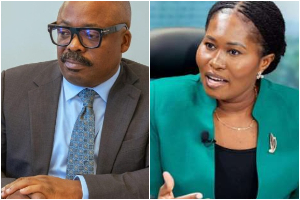Education should not be seen as an impartial and objective means of knowledge transfer, but rather a tool to either facilitate emancipation and or reinforce an ideological slavery.
The attainment of independence by African States, did not result in a radical reorganization of the social and political structures that were imposed as a result of colonization, but rather it facilitated the replication and reinforcement of colonial structures post-independence.
This is best seen in the education delivered to African Youths which has and continues to allow for the intellectual monopolization of western culture. As stated by Nyamnjoh, “the assumption … that because one is or appears African, one is necessarily going to be critical of Western intellectual traditions” (Nyamnjoh, 2001, p. 169), proves false, as the education received in African schools is informed by a type of anti-blackness that facilitates the internalization of inferiority of African Youth. Based on research and personal experience growing up in Ghana, I will discuss how the current education curriculum provides a disservice to African Youths; as it allows for the elevation of western intellectual traditions at the expense of indigenous knowledge systems, facilitates the disconnect of Youth from their communities and results in the inability for African Youth to think critically.
To begin, as expressed by Ngugi Wa Thiongo language serves as a carrier of the culture, traditions and history of a people; a fundamental aspect of life that informs a person’s identity (THiongo, 1986 ). Hence, in order for the decolonial process to begin there needs to be a remembering and reconceptualization of a future in which indigenous experience and ideals of social and political organization is centered. Unfortunately, as currently seen on the continent this notion is yet to be applied, as the language of instruction in many institutions has and remains to be English.
This results in the need for Africa Youth to a “navigate a complex array of conflicting mental states in order to accommodate the so called modern” (Breidlid, 2009, p. 172); not only are these foreign imported languages such as English not able to encapsulate the lived experiences of youth but it allows for the invalidation of Indigenous knowledge system encouraging a disconnect between youth and the elders in their communities. The inability for African Youth to articulate and externalize their wondering and opinions in their own languages results in the imprisonment of the mind and the inability to think outside colonial restraints. As further expressed, “with perhaps the exception of Tanzania, there is hardly a single sub-Saharan African university that 'offers a full diploma programme with an African language as principal medium of instruction” (Nyamnjoh, 2001, p. 172). Which further illustrates the intellectual and literary monopolization the west exercises at the expense of African traditions.
Moving on, the placement of Youth into boarding schools at critical times in their adolescent allows for the further disconnect of Youth from their communities. As illustrated by the reserve school system in Canada, the separation of children from their families denied indigenous youths the opportunity to practice languages, learn the culture and traditions of their people and facilitated the erasure of the historical consciousness of the indigenous person. This systemized disenfranchisement is also very prevalent on the continent, as it follows in the European tradition of separating in order to influence and “civilize”. As argued by Semali, this type of disenfranchisement participates in the whitening of the Young mind and equips African Youths with the skills and knowledge to live in the West as opposed to their communities.
Moreover, the current curriculum as institutionalized in Ghana prioritizes regurgitation as opposed to critical thinking. The immense amount of information expected by teachers to transmit to students contributes to the production of passive learners, who take up the ideologies of their instructors without resistance. Additionally, the lack of proper technology, value ascribed to standardized testing such as WAEC and use of colonial imported languages, participates in the stunting of this critical thinking and the inability for African educated scholars to compete on the global scale.
All in all, there needs to be restructuring of the public education curriculum and the implementation of one that centres indigenous knowledge systems, languages and facilitates the critical thinking of the young mind. In my opinion educational and curricula reform is not isolated from Africa’s place in the global economy, hence I strongly belief that the ability of African states to become self sufficient and the redefining of economic relations with the west will facilitate pride in ones indigeneity, allowing for the halt in the uptake of western philosophies and social structures. As illustrated in the Tanzanian context in spite of Neyere active want to move away from a colonial paradigm its past legacies and other factors such as its economic mobility deterred the advancements he had in mind.
Opinions of Tuesday, 9 April 2019
Columnist: Kofi Sakyi















